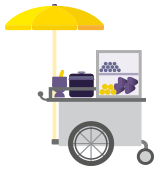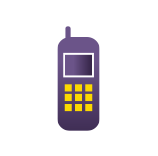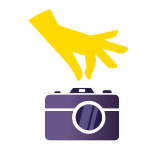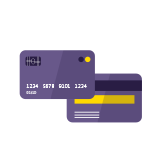Have a fun & enjoyable holiday with our guide to staying safe in Bali.
Bali, also known as the “Island of the Gods” or “The Last paradise”, is a Island located in Indonesia. It is deeply routed in Hindu traditions reflected by it’s many temples which host rituals and ceremonies all year round.
It has some insane natural beauty, it is easy to see why it is such a popular tourist destination. With stunning beaches with a gnarly surf culture, volcanic mountains and rice terraces that are a UNSECO world heritage site, Bali has a range of diverse and picturesque landscapes.
1Cover’s Bali Survival Guide tells you about cultural must-knows, visa requirements, how to get around, stay safe and much more!
There are some amazing sunsets to see in Bali so make sure you head to a relaxing spot with your camera in hand. Some of the best spots include Jimbaran Bay, The Rock Bar & Tanah Lot.

White water rafting and scuba diving are just some of the adventure activities you can do. If you’re more of a land lover you could try climbing Mount Batur at sunrise for a spectacular view.

Whether you spend a week here or just a day trip the rice paddies of Bali will give you firsthand experience of how the locals really live.

Bali is known as one of the world’s number one surfing spots. There’s waves for everyone from beginners to the pros.

Don’t miss out big time on one of the best parts of Bali culture! Make sure you try Sate, Nasi Ayam and Nasi Campur and Betutu.

There are thousands of temples in Bali. Must sees include Besakih (the mother temple), Ulun Danu Beratan and Uluwatu.
If you can’t get into Indonesia than your trip is over before it’s even begun. But never fear - when it comes to visas and entry here’s what you need to know:
 You’ll need at least 6 months validity on your passport or you won’t be allowed into Indonesia.
You’ll need at least 6 months validity on your passport or you won’t be allowed into Indonesia.
 New Zealanders travelling to Indonesia must purchase a Visa on Arrival at the airport or online for $52.
New Zealanders travelling to Indonesia must purchase a Visa on Arrival at the airport or online for $52.
 If you are travelling to Bali you must pay the tourist levy, a fee of 150,000 rupiah (16NZD). Pay online on the Love Bali website.
If you are travelling to Bali you must pay the tourist levy, a fee of 150,000 rupiah (16NZD). Pay online on the Love Bali website.
Travel requirements may change at short notice so monitor media for up to date details.
 Maximum 1 litre
Maximum 1 litre
of alcohol.
 200 cigarettes or 50 cigars or 100 grams of tobacco.
200 cigarettes or 50 cigars or 100 grams of tobacco.
 A reasonable amount of perfume.
A reasonable amount of perfume.

Phoning home is pretty cheap when you’re in Indonesia. SIM cards are easy to purchase and the major national operators include:
IDD code - 64 - Area Code - Land phone number.
IDD code - 64 - Nine digit mobile phone number.
IDD code - International Direct Dial code. Depending on your phone provider you will have a different code.
64 - Country Code of New Zealand.

0011 - 62 - Area Code - Land phone number.
0011 - 62 - 9, 10 or 11 Digit mobile number.
00 - Exit code for New Zealand, and is needed for making any international call from New Zealand.
62 - ISD Code or Country Code of Indonesia.
Area code – 1 of the 25 area codes in Indonesia.
![]() Police 110
Police 110
or (0361) 751598
![]() Tourist Police
Tourist Police
(0361) 155 4
![]() Ambulance 118
Ambulance 118
or (0361) 257550
![]() Fire Brigade
Fire Brigade
113
![]() Bali Taxi
Bali Taxi
(0361) 701111
![]() Bali Government Tourism Office (0361) 222387
Bali Government Tourism Office (0361) 222387
You have three options to get yourself from Ngurah Rai airport to your accommodation.
If you leave the airport you can flag down a metered taxi, but make sure you pick a Bluebird. More details on taxis further down in the guide.
Some hotels offer a shuttle service from the airport right to your hotel doorstep. This service is the most convenient of them all, so check if your hotel offers it when booking your accommodation. Some shuttles to your hotel can cost a fee (payable directly to the hotel).
These guys are the only taxi service that operate out of the airport. They have a service counter located just outside of the arrivals hall (when you exit arrivals turn right). Let the attendant know where you’re going, pay the fare and proceed to the taxi with the receipt. The rates are fixed and this option usually works out to be the cheapest.
Taxi drivers wear blue patterned shirts. Anyone
else who offers to help you
with your bags will ask to
be paid for assisting you and may not be a taxi.
Always check the calculations and know what you’re owed before handing over any money.

There are lots of adventure activities you can undertake in Bali, like white-water rafting, surfing, scuba diving, just to name a few.
Take the right precautions, always get travel insurance and make sure you’re covered for any activities you plan to take part in.
*without an NZ licence
Watch the video to learn more about travel insurance restrictions and conditions when riding a scooter overseas.
The New Zealand Government issue travel warnings for destinations around the world depending on the safety issues at hand, they can be found at the SafeTravel website. In general, Indonesia is a safe country to visit and Bali is known as a safe region however, a high degree of caution is advised by the due to security risks. When travelling take any official warnings seriously and follow advise of authorities.
No matter where you travel, keep your wits about. Things aren’t always perfect in paradise. There is an ongoing risk of terrorist attack in Indonesia. Be alert to possible threats and follow the advice of local authorities. Popular tourist areas may be the target of terrorist attacks. While the chance of this happening to you is small, it is important to know about.
 Overall, crime in Bali is low, however petty crime (as well as vehicle thefts) do happen and sometimes violence is used. The most common vehicle stolen is motorcycles.
Overall, crime in Bali is low, however petty crime (as well as vehicle thefts) do happen and sometimes violence is used. The most common vehicle stolen is motorcycles.

Public protests and events that draw large groups of people occur regularly and can turn violent with little notice. Expect traffic delays and restricted access to locations if there are protests. Avoid protests and demonstrations and monitor local media for the latest updates.
 More recently there has been an increase in reports of violent crime in Bali. This includes muggings and street robberies involving tourists in the Kuta area. Thieves on motorcycles may snatch handbags and backpacks from pedestrians.
More recently there has been an increase in reports of violent crime in Bali. This includes muggings and street robberies involving tourists in the Kuta area. Thieves on motorcycles may snatch handbags and backpacks from pedestrians.
 Drink spiking and assaults also occur. Look out for your friends when out on the town, watch your drinks and be aware of your surroundings.
Drink spiking and assaults also occur. Look out for your friends when out on the town, watch your drinks and be aware of your surroundings.
Methanol poisoning is a concern in Bali. Methanol is a chemically simple form of alcohol, it is found in home-brewed alcohol (also known as Arak) that hasn't been distilled properly. It can be very dangerous and potentially fatal if not treated quickly. If you suspect you have it, go to hospital to get treatment which is usually ethanol (properly brewed alcohol) or fomepizole. Other treatments may also be needed depending on how much was consumed.

Arak is essential homebrewed alcohol and if distilled incorrectly it can contain methanol. Even the official stuff can be deadly.

This includes cocktails. If you are going to drink spirits buy the whole bottle of a brand you know, make sure it’s sealed, and open it yourself to share with friends.

The symptoms of methanol poisoning include headaches, dizziness, amnesia and drowsiness; as well as nausea, vomiting, diarrhoea, blurred vision and hallucinations. If you feel any of these or notice your friends experiencing them go to hospital ASAP!
There are two types of taxis in Bali - the Bluebird taxis
(the real deal), and the not so good ones. If you’re a fan
of a metered cab go for a Bluebird – they’re the reputable ones.
If you’re more of a free spirit you can get in an unnamed car
– but you may not know how much it’ll cost and you might pay
more than you bargained for.
If you are planning on seeing lots of Bali you could always consider hiring a personal driver which are affordable and can be more reliable than taxis.
 Bluebird taxis are light blue, and will have a “Bali Taxi” logo on the side door and a blue bird logo on the roof. Drivers will display an ID card and photo.
Bluebird taxis are light blue, and will have a “Bali Taxi” logo on the side door and a blue bird logo on the roof. Drivers will display an ID card and photo.
 You can call and book a taxi in advance. But booking isn't always necessary because Taxis are everywhere! Especially in South Bali and Ubud.
You can call and book a taxi in advance. But booking isn't always necessary because Taxis are everywhere! Especially in South Bali and Ubud.
 Always make sure the taxi meter is on, if a driver tries to tell you it’s broken or the ride is too short for a meter then you could try finding one that will keep the meter on.
Always make sure the taxi meter is on, if a driver tries to tell you it’s broken or the ride is too short for a meter then you could try finding one that will keep the meter on.
 Unless you know exactly what you're doing, you might not want to negotiate a fare with a taxi driver. It may not come out in your favour. Taxi drivers are known to overcharge tourists.
Unless you know exactly what you're doing, you might not want to negotiate a fare with a taxi driver. It may not come out in your favour. Taxi drivers are known to overcharge tourists.
Bali is a great place to travel with the tots! With heaps of family friendly resorts, beaches left, right and centre and more activities than your heart desires, you’ll be asking yourself why you haven’t gone before!
Travelling as a family means you'll have to be more organised. Follow our family friendly tips to make your holiday easy and breezy!

You can get fresh milk, nappies and toiletries in supermarkets. Some have baby formula but to be safe it’s best to bring your own from home.

Some villas may not have pool fences so be sure to check this when booking your accommodation.

Some hotel balconies can be damaged or have low railings or balusters that children can climb.

Prepare your kids beforehand by letting them know that they can’t drink the tap water – including in the bath or shower.

You might consider taking a stroller with large wheels for the beaches and un-even footpaths.

Best to research beforehand and find a private driver or a company you can hire one from. You could also take one from home.

With dedicated playgrounds, pools and fun activities for the kids to do.

A pram will come in handy during meals at restaurants and cafes.

Staff at restaurants will often pick up your kids and give them a lot of attention.
 Is It Okay To Breastfeed In Public?
Is It Okay To Breastfeed In Public?
Balinese women breastfeed in public, so it is safe to do so. Just use discretion, you could take a light weight shawl to cover yourself.
 Is It Safe To Hire A Nanny In Bali?
Is It Safe To Hire A Nanny In Bali?
Many parents take advantage of hiring a nanny in Bali so they can have a more relaxing holiday (and enjoy time off from the kids). If you take the right precautions it can be a safe and a perfectly rewarding experience for you and your kids.
Bring funky water bottles to refill for the kids. That way they will always remember that they can only drink water from this bottle.
 Through word of mouth. Ask friends or the hotel you are staying at for a recommendation.
Through word of mouth. Ask friends or the hotel you are staying at for a recommendation.
 Do they speak English well? – this is important so they can communicate with your kids
Do they speak English well? – this is important so they can communicate with your kids
 Ensure they have had CPR and first aid training. Can they swim?
Ensure they have had CPR and first aid training. Can they swim?
 Inquire into their experience – how many years have they been a nanny?
Inquire into their experience – how many years have they been a nanny?
 How would they react to certain situations – Allergies? Emergency situations?
How would they react to certain situations – Allergies? Emergency situations?
 As a guide Nanny’s cost about $66 NZ for a 12 hour day, some places charge more.
As a guide Nanny’s cost about $66 NZ for a 12 hour day, some places charge more.
Getting scammed can happen anywhere, but when you’re a tourist in a new city you’re often a prime target for scams. Read up on the scams you need to know about and you should be A-OK!

There have been instances of police and officials or people posing as police taking bribes when you have "broken the law" for example by speeding. To avoid any incidents, always wear a helmet when riding a motorcycle and make sure you have the correct license with you.

While out and about in Bali you can choose to check out the chaotic Kuta with its infamous nightlife, Seminyak for its legendary sunsets or Sanur for a more family friendly vibe. While exploring you will be offered endless deals and bargains, some will be good value, some will not!

You can get virtually anything when shopping in Bali, from handmade masks, to local art, antique furniture and delicate jewellery. Ask your accommodation staff how much certain items should cost so you don't get overcharged by sellers.

You may come across people asking for money, whether you choose to give them any or not, always do so politely. Beware of your surroundings and don't go off the beaten track because you're being told it's a "good idea."

Seeing the ancient temples in Bali is at the top of the to-do list when visiting Indonesia. Be careful when you enter as sometimes people not associated with the temple stand outside and demand entrance money. Always go forward and check if there is an official ticket window first to pay at.

Water lovers and gnarly surf addicts unite in Bali! If you didn't BYO board you may notice people on the beach offering surfboards to hire. A good tip here is to check the board before you rush off into the water. Many have been damaged and have been glued back together.

Be careful in places where personal space is basically non-existent. The closer people are to you the easier it is for them to steal out of your pockets. Watch out for sellers who crowd you or people who force you to squeeze past them. The best way is to have pockets with zippers or keep your hands in your pockets.
Humour and a cheeky smile can get you a long way in life, and it can get you a long way when bargaining in Bali too! Haggle in markets and street shops.

Enjoying exotic cuisines is a huge part any travel experience. Avoiding local food, especially in Bali, means seriously short-changing your tastebuds. Feel free to indulge. Head to stalls with big crowds, a high turnover of fresh food and lots of locals.
Choose dishes cooked to order, rather than pre-prepared, skip raw salads and opt for fruits and veg that can be peeled rather than washed.

While you’re in Bali you shouldn’t drink water out of the tap. Stick to bottled water and canned drinks, and avoid ice in
your drinks if it’s made from tap water. Many travellers don’t even use the tap water to brush their teeth.
 Wash your hands regularly to eliminate any bacteria. Take hand sanitiser to use on the go.
Wash your hands regularly to eliminate any bacteria. Take hand sanitiser to use on the go.
 Avoid using tap water to wash your fruit and vegetables.
Avoid using tap water to wash your fruit and vegetables.
 Drink bottled water, and use it to brush your teeth.
Drink bottled water, and use it to brush your teeth.
 Boil tap water for at least five minutes before drinking it.
Boil tap water for at least five minutes before drinking it.
Dishes to try include: babi guling (suckling pig), bebek betutu (slow cooked duck) or sate lembat (Bali’s take on satay)

If you plan on getting a tattoo while on your holiday, there are a few risks that you should consider. Generally speaking, if you go to a reputable tattoo parlour that is clean and safe you should have no worries. It is important to keep in mind tattoos are open wounds while they are healing so if you get a tattoo, you should avoid going in the sea or any pools and keep it our of the sun, especially while it is fresh.
The general standards for tattoo shops may not be the same as back home so keep an eye out for a few key things:
Temporary black henna tattoos are also common in Bali. However, many people have severe allergic reactions to black henna. Unlike natural henna, black henna contains an additive known as paraphenylenediamine (PPD), which is a dangerous chemical. The reactions it causes can range from minor irritations such as itching to severe blisters and scars. Sometimes kerosene or petrol is also added which can increase sensitivity and cause irritants. If you do decide to get a henna tattoo, opt for natural red henna, it is far less likely to cause a reaction.
Dengue fever is viral disease spread by mosquitos, it’s usually not fatal but can cause some symptoms that you probably won’t
want ruining your holiday.
Symptoms may be mild and flu like but in some cases have developed into more severe forms of the disease.
The highest incidence of reported cases of dengue fever in Bali occur in the rainy season which runs from October to April.
There is no specific treatment and no vaccine. Seek medical attention immediately if you think you’ve contracted the disease.

Long sleeved shirts, long pants and long socks are all your friends. Spray repellent on them if you’re heading outside near dawn and dusk and before you go to bed.
As much as you can. The ones with DEET as a major ingredient work the best.
Avoid perfumes and strong aftershave and wear lighter colours if possible.
Indonesia is located in what is known as the “Ring of Fire” – which is an area with lots of tectonic activity.
This means tsunamis, earthquakes, floods and volcanic eruptions! All sounds pretty scary right? Well never fear, while these kind of disasters do happen in Bali, extreme disasters aren’t very common.
If there is a natural disaster: keep you passport in a waterproof bag, stay in contact with family and friends, and always listen to local advice.

Many of Indonesia’s volcanoes are active and can erupt without warning. Volcanic and seismic activity may continue for some time. Adhere to exclusion zones around volcanoes, which can change at short notice.
Volcanic ash clouds have caused disruptions to airports and flights between New Zealand and Bali. Check with your airline in the case of volcanic ash clouds before departing for the airport.
Also make sure you check 1Cover's Travel Alerts before you book.

Strong earthquakes can occur anywhere in Indonesia due to the tectonic activity.

Tourists hot spots like Kuta, Tanjung Benoa, and Sanur – are in low-lying areas that may be easily swamped if a tsunami occurs.

We know New Zealand can be pretty balmy, but if you didn’t know already…Bali is HOT!
Sunburn can be horrendous on a holiday, and can potentially ruin it if you end up with sunstroke. At the risk of sounding like your mother our advice is:
![]() Use a sunscreen with at least 30 SPF.
Use a sunscreen with at least 30 SPF.
![]() Always carry water, heatstroke is not fun.
Always carry water, heatstroke is not fun.
![]() Spend less time in the sun during 10am and 3pm when the sun is at its hottest.
Spend less time in the sun during 10am and 3pm when the sun is at its hottest.
Bali has some amazing beaches which are perfect for swimming, surfing or just laying around on.
|
Family |
Surfing |
Nearby |
Young |
Swimming |
Nightlife |
Top Tips | |
|---|---|---|---|---|---|---|---|
| Geger Beach |
|
|
Located near the Grand Hyatt and St Regis Hotels, you can use this beach at any time (without staying at the hotels). |
||||
| Sanur Beach |
|
|
|
Along the beachfront is a 7km wakway great for early morning walks, bike rides or to simply check out the view. | |||
| Kuta Beach |
|
|
|
|
|
|
Waves here are big and the ocean currents are strong, so if you're a keen surfer or an Olympic medal swimmer then this should suit you! |
| Seminyak Beach |
|
|
|
|
|
This beach is quieter and known as the more upmarket beach - so head here if you want a more 'chilled out' vibe. | |
| Blue Ocean Beach |
|
|
|
|
|
Blue Ocean Beach comes alive at night, and is lined with bars, restaurants and Bali's biggest nightclub, DoubleSix. | |
| Jimbaren Beach |
|
|
Amazing place to watch a sunset with a cocktail in hand or for taking a dip in the ocean on a hot Bali day. |
When it comes to safety on the beaches there are a few things to look out for:
Some of Bali’s beaches can be pretty dangerous. If you see red flags on a beach don’t swim there, as they indicate dangerous currents and rips.
These flags mean lifeguards patrol the beach and are the safest to swim on. It’s rare to find patrolled beaches in Bali though.
This means no lifeguards but are potentially safer than red flagged beaches.
Stray animals like dogs, cats and monkeys (believe it or not) should all be avoided in Bali, and in the rest of Indonesia.

Rabies is prevalent in Bali and can be contracted through being bitten by an infected animal or if an animal’s saliva gets directly into your eyes, nose, mouth, or broken skin. Our tip is to get vaccinated before your trip if you plan to spend a lot of time outdoors or around animals.

If bitten or scratched by any animal you should immediately wash the wound thoroughly and seek urgent medical attention. You may need to take antibiotics for high-risk wounds so ensure you are checked by a doctor as soon as possible.

Avoid macaque monkeys, even in tourist areas where you are encouraged to touch or go near them. They can steal things from you or attack you. Don’t smile at them as they see a show of teeth as aggression, don’t grab something they are holding as they may bite you, and don’t show them any fear.
Your passport is your ticket to ride so try not to lose it down the back of a couch, or leave it in the back of a taxi. Follow these handy steps if you do lose your passport.

Seems simple right? But sometimes your passport may have been left at the last place you stayed so call the hotel.

If you are unable to find it after searching far and wide (or you know for a fact it was stolen) then you need to report it to the government.

Things you will need to do to get a replacement passport include: an application form, photos and possibly booking an interview.

Of it occurring. Ensure you get a police report documenting the loss or theft. You will need this report to make a travel insurance claim.

To report the claim as soon as you can. That way you can confirm cover and seek advice.
![]() Tourist Police Kuta - Jalan Kartika Plaza, Kuta, Bali
Tourist Police Kuta - Jalan Kartika Plaza, Kuta, Bali
(0361) 754 599
 New Zealand Travel Emergency Number
New Zealand Travel Emergency Number
+64 4 439 8000
If something serious happens and you find yourself severely sick or injured you’re going to need to get to a hospital, and fast. Always make yourself aware of your nearest hospital, just in case. Hospitals in Bali deliver great standards of care. Many hospital and clinic staff speak English, and have all the usual infrastructure like emergency departments, air ambulances and specialist clinics.
 Call 118 for an ambulance or 112 for all other emergencies.
Call 118 for an ambulance or 112 for all other emergencies.
 For medical claims you will need a doctor’s report so don’t forget to get this.
For medical claims you will need a doctor’s report so don’t forget to get this.
 The Balinese are always ready to help so if you are in an emergency don't hesitate to ask for help.
The Balinese are always ready to help so if you are in an emergency don't hesitate to ask for help.
 Siloam Public Hospital Kuta, Badung Regency
Siloam Public Hospital Kuta, Badung Regency
 Ngurah Rai International Airport
Ngurah Rai International Airport
Jalan Raya Gusti Ngurah Rai, 80362
 New Zealand Consulate-General
New Zealand Consulate-General
Gelora Bung Carno No. 8, Jakarta, 10270
 BIMC Hospital Nusa Dua - Kawasan BTDC Blok D, Nusa Dua, Bali 80363
BIMC Hospital Nusa Dua - Kawasan BTDC Blok D, Nusa Dua, Bali 80363
 Bali Tourist Police
Bali Tourist Police
Jl. Kartika, Kuta, Kabupaten Badung, 80361
 BIMC Hospital Kuta
BIMC Hospital Kuta
Jl. By Pass Ngurah Rai, Kuta, Kabupaten Badung

Don’t panic (and don’t fight back if you are aware of the robbery). Your camera isn’t worth as much as your life so best not to risk it.

Contact your embassy or high commission office to get assistance if needed, such as if you have troubles with the local police.

Report stolen keys to your hotel. Replacement keys and locks may need to be arranged.

Cancel all credit cards and report them stolen to your bank.

Find the nearest police station and report the incident, and obtain a police report within 24 hours.

If all your cash and access to money was stolen you can arrange for a money transfer from someone back home.

If you need to replace items such as your beloved camera speak to your insurance company to find out what is covered.

Last but not least stay positive. Theft can happen to even the savviest of travellers.
Enjoy your trip to the island of the Gods and stay safe. If something does goes wrong, at 1 cover,
we’ve got you covered.